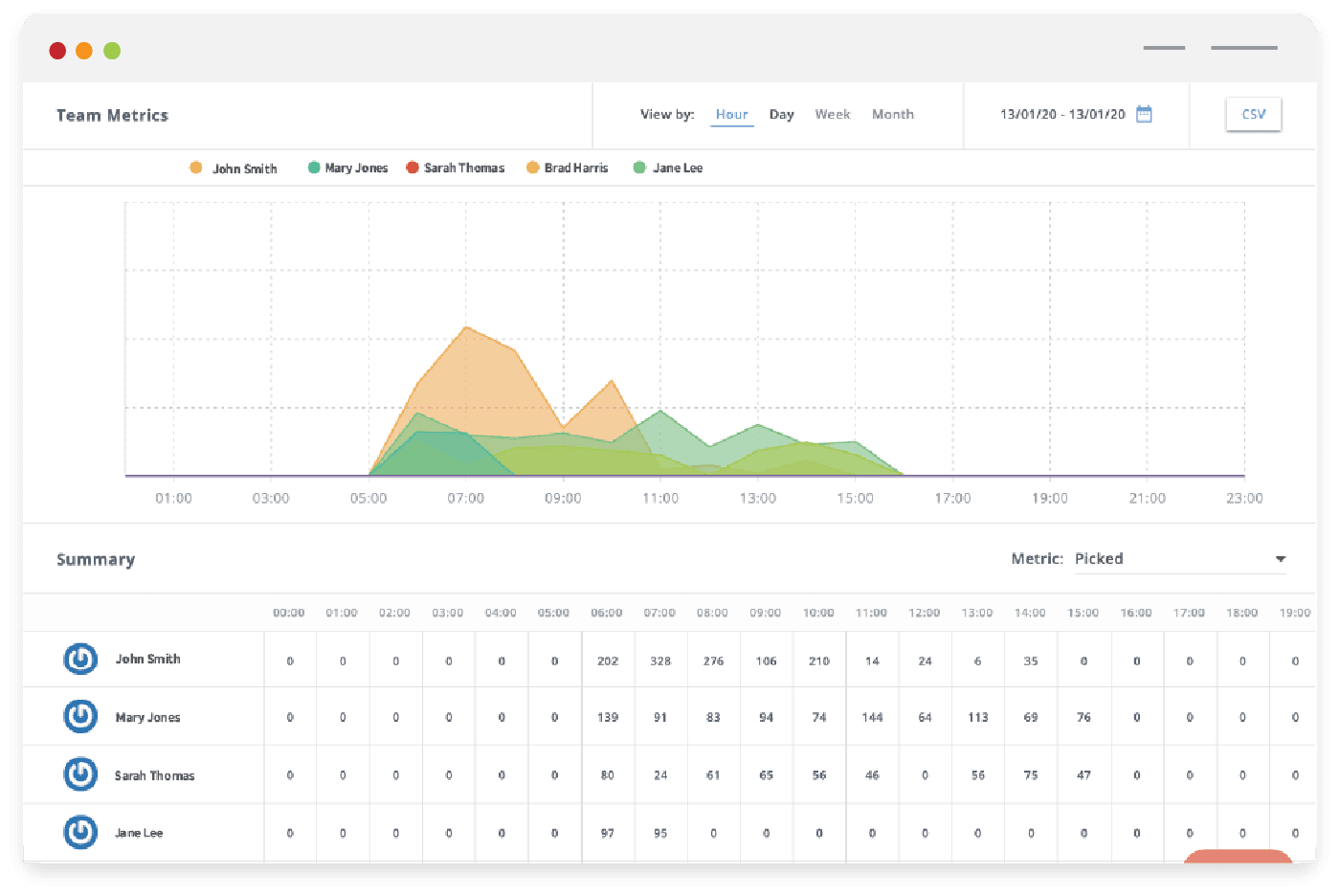A Complete Guide To Perpetual Inventory Systems
What is a perpetual inventory system?
A perpetual inventory system is a method of tracking inventory constantly, in real-time. Often requiring software to connect sales channels, warehouses and shipping carriers. They are normally used by ecommerce retailers whose operations have become too large for a manual, or periodic, system to be feasible. Modern systems will normally be cloud-based.
What is the difference between a perpetual inventory system and a periodic inventory system?
Fundamentally, the difference between the two lies in a perpetual system being automated whereas a periodic system relies on the regular manual recording of goods sold and their cost.
Perpetual inventory system | Periodic inventory system |
|---|---|
Used by larger businesses and smaller businesses that are looking to grow | Used by start-up ecommerce retailers with simple fulfillment operations |
Costs money | Free |
Automatically records inventory across multiple sales channels and warehouses | Each sale has to be manually updated in relevant spreadsheets |
Stock takes can be carried out in the background | Stock takes are frequently carried out |
Should you use a perpetual inventory system or a periodic inventory system?
Starting out, most companies use the periodic inventory system. It’s free and simple enough to use when your fulfillment operations are simple and sales are low.As a company grows the issues caused by periodic systems, such as inaccurate inventory information or poor warehouse management, start to hold the business back. At which point, moving to a perpetual inventory system will be necessary. This is because perpetual inventory management systems optimize inventory management as well as cutting down on time spent on fulfillment operations, human error, staff hiring and staff training.
Advantages of a perpetual inventory system
1. Better inventory control
The key reason businesses use perpetual inventory systems is that it gives them better control over their inventory. Real-time data gathering and reporting reduces over and understocking. So businesses can ultimately get more value from their stock.
2. Optimizes inventory levels
A perpetual inventory software should be able to use current and historic sales data to make sure stock is kept at optimal levels.
3. Provides accurate demand forecasts
A perpetual inventory system will accurately track your sales and current inventory levels. The system will then be able to predict future sales cycles, based on the current stock and sell rate, ensuring you have enough stock to meet demand at key times.More sophisticated perpetual inventory systems like Veeqo can also factor in data like lead times and can also help with purchase order creation and tracking.
Learn more about Veeqo’s perpetual inventory management system
4. Give full visibility of warehouse operations
A good perpetual inventory system will be able to track exactly what happens to your stock when it is picked, and by whom. This means you can optimize your warehouse processes and make sure everything is working as it should.
5. Give real-time data collection

A perpetual inventory system will continually track sales, returns and any other relevant data. This data can give visibility on your fulfillment operations to the relevant people across your business.
6. Keeps a complete paper trail
As your ecommerce supply chain and your order management gets more complex, keeping a record of your inventory manually will become untenable. A perpetual inventory system will automatically keep a complete paper trail of all of your stock movements.
7. Monitors key metrics & provides accurate reports
The system should be able to provide the user with a range of reports on their inventory and warehouse performance. While each system will differ in what reports and metrics they offer, Veeqo’s perpetual inventory software gives visibility of the following metrics:
Sell through rate of a product
Profit made per product
Warehouse inventory valueWarehouse picker performance
Units sold as part of bundles
Returns reports
Inventory change logs
8. Save on labor costs and training
Perpetual inventory systems optimize fulfillment operations and automate many tasks that otherwise would be manual. This has two major advantages to business owners. Automation means that you can keep your team small and the optimization keeps your processes simple, so it takes less time to train new hires.
9. Highlights discrepancies to be investigated
A perpetual inventory system can give you accurate, up-to-the-minute, data on your inventory situation, so you can quickly see and look into any issues that arise. Letting you quickly investigate any discrepancies, shrinkage or count errors.
10. Removes the need for frequent inventory counts
While it is good practice to still do some physical inventory counts, a perpetual inventory system keeps track of all of your inventory at all times. Greatly reducing the need to stop your warehouse operations to do physical stock checks.
11. Saves money on inventory management costs
Due to real-time updates, expenses such as holding costs and inventory replenishments are reduced.
How do perpetual inventory systems work?
A perpetual inventory system works by connecting point-of-sale systems with your warehouse operations and stock levels. This often uses barcode scanning to make the process fast and accurate.
Why are storage costs reduced under a perpetual inventory system?
Storage costs are reduced because the perpetual inventory software will be able to keep track of what stock is selling and at what rate it sells. This then reduces overstocking, reducing the overall space needed in your warehouse.
Why do companies use perpetual inventory systems?
A perpetual inventory system provides an ecommerce business with accurate stock level data, without having to spend a lot of time manually inputting data into spreadsheets. Perpetual inventory systems free up time and resources, allowing time to be spent on business growth rather than ecommerce fulfillment ops.
What types of companies use perpetual inventory systems?
Perpetual inventory systems are used by companies that need to control their inventory costs and margins. This could be because they sell a lot of products, have complex inventory operations, or are simply looking to grow their ecommerce business.
Why are perpetual inventory systems popular?
Perpetual inventory management systems are becoming more popular for several reasons:
Today’s ecommerce world is growing more complex for retailers as they grow towards multichannel sales. So now, more than ever, a business needs a software solution that can handle this complexity.
The software available itself is improving at a fast rate. Offering more features and benefits each year.
As the ecommerce market grows, it gets more competitive. This means that companies wanting to succeed need to have complete control over their margins. A perpetual inventory system is a part of being able to keep inventory expenses down.
Businesses are increasingly relying on data-driven decision-making to drive growth. To make these decisions you first need accurate data. A good perpetual inventory solution gives access to this data, promptly, in an easy to understand format.
Learn more about Veeqo’s perpetual inventory management system






